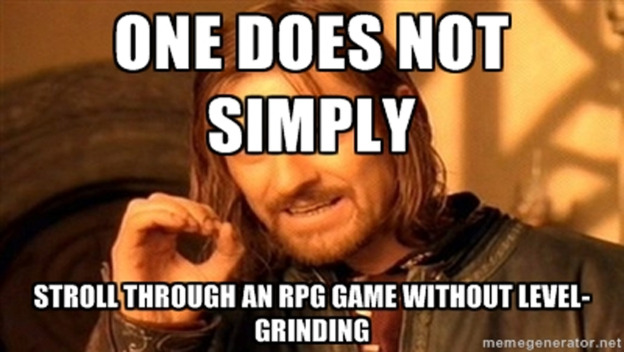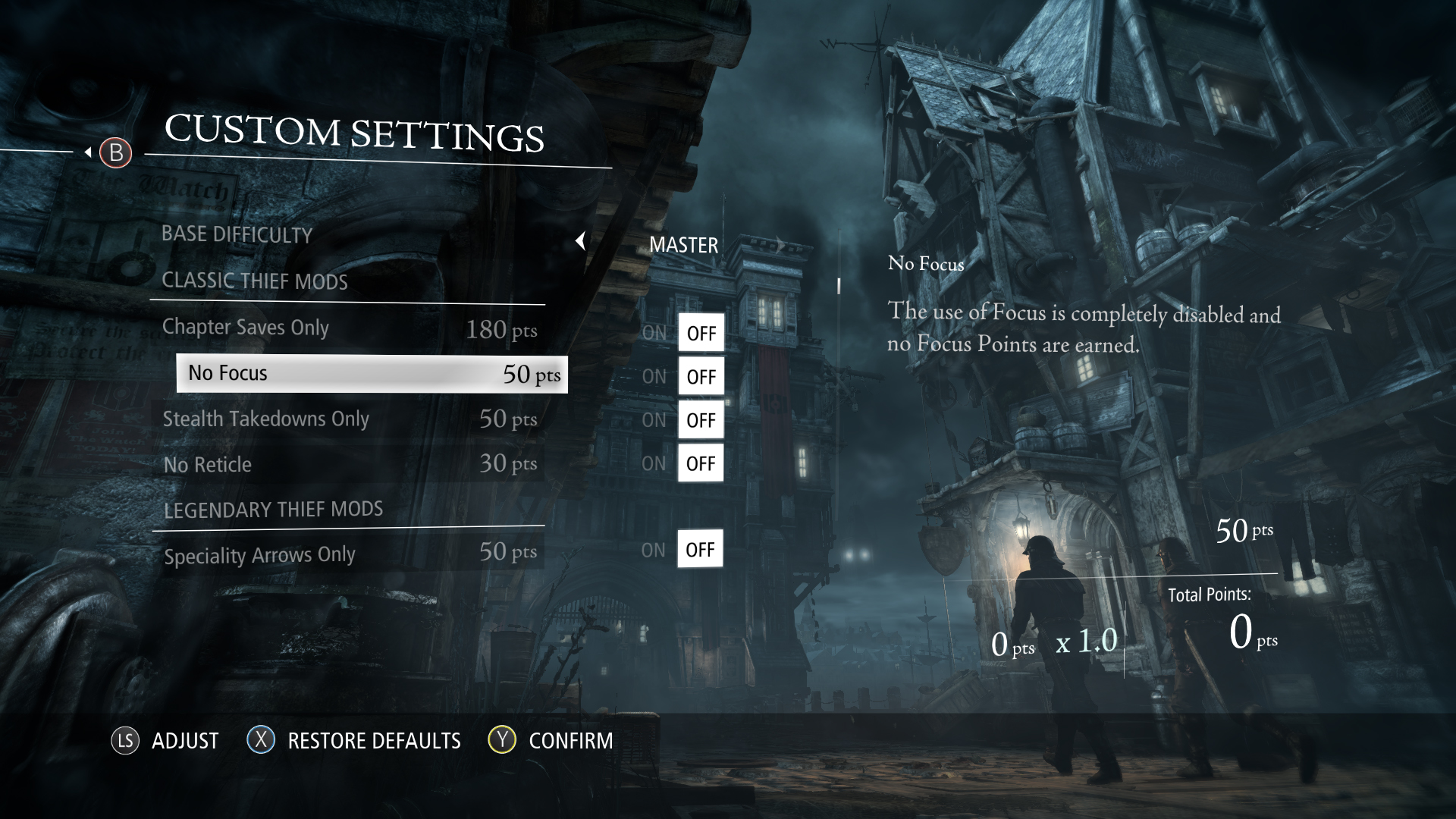There is an old game development philosophy, now considered outdated, that suggests that players should have to ‘earn’ their fun in a game. It’s the source of the “grind”, and it’s where the idea of pitifully weak low-level characters who grow to be powerful comes from. A lot of games have their really fun, exciting levels a little ways in, and in older arcade games, you’d have to be really good or pump in a lot of quarters to reach them.
You can pretty easily see when and where it fell out of favor, and in which genres. RPGs made you work your way through quite a bit of experience before you had interesting abilities and weapons. First-person shooters made you go through several levels with very simple weapons before you got to play with anything really cool. MMORPGs would make you spend weeks or months fighting boars and wolves before getting powerful enough to even fight an enemy of a player race, much less something big like a griffon or dragon.
I’ve seen this elsewhere as well– I’ve talked before about certain TV shows having really slow or confusing opening episodes, which set up significant payoffs later on down the line. It’s something I’ve noticed an incredible amount of in anime, and while I don’t watch as much American TV, quite a few people I know who watch a lot of it tell me the same is true there. Bel commented over the weekend that he doesn’t decide if he likes a show or not until four or five episodes in at least, and it’s a rule I’ve adopted for anime as well.
There’s a flip side to the concept of “earning” enjoyment out of a piece of entertainment. If you’re invested in an experience, you’re a lot more likely to enjoy it, and if you have to work to get that investment, you’re going to value it more. It’s a fairly straightforward bit of psychology that crops up pretty much everywhere, and it’s fairly clear here as well. Things that are easy to get into are also easy to get out of; the games and shows I remember the most about are the ones I had to do some work to get invested in, whereas the easy shows don’t tend to stick with me as much.
As an example, I can’t really remember much about what happens in Azumanga Daioh, despite liking that show quite a bit when I watched it. It was easy to sit down and watch and while I have a vague recollection of it and I know it’s relatively simple, I can’t recall specifics even on rewatching episodes. On the other hand, in rewatching Baccano recently, I realized that I remembered pretty much everything that happened in the show, and with a brief memory jog could name characters and even specific scenes. Baccano is a much more complex, much less accessible show, and I had to put some effort into it. The payoff was fantastic, and it’s one of my favorite shows, but it requires that effort– that investment– to get the most out of it. Its spiritual successor, Durarara, had a similarly slow first episode, but once I got into it I was absolutely hooked, and it’s propelled itself easily into my top list of favorite shows.
I find myself seeking that investment in my entertainment– I want shows and games that I need to put a bit of effort into before they pay off. It’s something I’ve recently realized drives a lot of my interests; a lot of people like entertainment that they describe as “a way to turn my brain off”, and I’ve very rarely enjoyed that kind of experience. A lot of my friends are playing Diablo again recently, and it’s a game I’ve tried to like but don’t really enjoy most of the time– not because it isn’t fun, but because I don’t find it engaging and I get bored. In a similar vein, when I load up a new stealth game, I tend to crank the difficulty all the way up. I’d wondered why I do this, but it fits nicely into the idea of investing in the experience. It makes the game harder, so I have to work at it, and as a result I enjoy it more, because my victories feel more real. When I play minis games, I’ve put in the effort to acquire, assemble, and often paint the models I have, and in most cases I’ve constructed themes and narratives around them, so they feel weighty and meaningful.
FFXIV has an incredibly slow start compared to other recent MMOs– it’s a LONG time before you’ve got a variety of cool abilities and even have the basic mechanics of the game unlocked– it’s level 30 at least, sometimes later, and your class doesn’t feel like a complete concept until 50 in many cases. There’s a ton of mandatory story and a lot of things you simply have to do in order to progress. One of the criticisms levelled at Heavensward was that you had to play through the entire story of the game, including all of the main story content patches, just to even access the expansion content. For a lot of people, this was a wall that they had to climb to get into the new, cool areas they just paid for. However, the story of FFXIV is so central to the experience that a lot of what happens in Heavensward would be either nonsensical or have no impact if you could skip all of that content. The game forces you to invest some time (and, to be fair, rewards you fairly well if you’d not previously done it) so that you’re in a position to appreciate the new content.
I’m tempted to say I’m torn on this– that on the one hand I really do value the experiences I didn’t instantly love but came to enjoy a lot more than the ones I liked from the start, but that I also despise grinding and doing repetitive, grindy content just to “get to the fun part”. I’m really not torn at all, though. The investment is valuable, it just needs to be applied properly. The show has to be well-written, or the game well-designed, so that there is a satisfying payoff after you put in the investment. It’s got to feel like your time and effort are respected.
There’s a certain amount of trust that goes into it as well. You’ve got to be willing to trust that this thing you’re experiencing that seems like utter crap right now is going to all be worthwhile later. It’s a tall order, because we’re so inundated with quick, thoughtless entertainment experiences that aren’t trying to be thought-provoking or offer any payoff other than the immediate. There’s nothing inherently wrong with this kind of entertainment– it has its time and its place– but it’s very difficult to tell off the bat whether you’re dealing with something shallow or something deep until you’ve put a bit of time into it.
This isn’t to say that all meaningful, thought-provoking entertainment experiences have to be obtuse and inaccessible at first; what I *am* torn about is whether that’s a good idea. While it certainly forces me to put effort in, it’s also really good at losing me. I have to go digging for the hook, and sometimes it doesn’t seem like there’s going to be a hook to find.
That having been said, my track record thus far with shows I haven’t liked at first but have put effort into is really great. Of the shows I’ve watched at least four episodes of this year, there’ve been two that I’m not enthused about watching more of, out of twenty or thirty by now. It’s a really good track record. Games have been starkly less good, though I think a lot of that is because my feelings on playing games has been changing since I stopped working on them, but it’s easy to fall into old “force yourself to play” habits.
Part of me is looking at the new Metal Gear Solid game– a series I haven’t played in a decade by now, and wondering if it’s worth the investment. Certainly I know a lot of people who are very into that series, and while it seems like inaccessible nonsense from the outside, I can’t help but wonder if there’s a solid (ha!) payoff for the invested player. I’ve got other games to play right now, and no disposable income for an MGS game, but still, I wonder.





